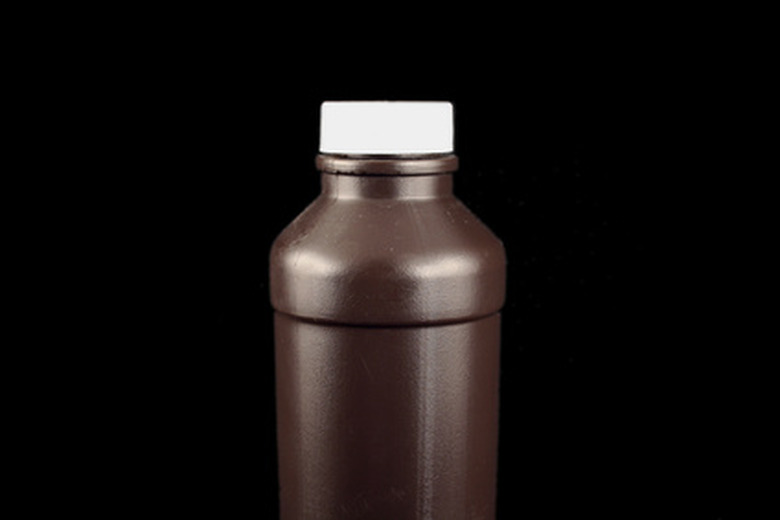The Effects Of Heating H2O2 And Stability
H2O2, which is two hydrogen atoms and two oxygen atoms, is the chemical composition of hydrogen peroxide. Hydrogen peroxide has many uses. It is a bleaching agent, weak acid and it has oxidizing properties which make it a perfect ingredient for antiseptics, disinfectants, oxidizers, sterilizers and propellants. Most people have hydrogen peroxide in their medicine cabinets, ready to be used to clean out small scrapes and cuts.
Decreased Stability
Decreased Stability
Hydrogen peroxide is a very stable chemical. When hydrogen peroxide decomposes and looses stability, it releases oxygen. One factor that reduces the stability of hydrogen peroxide is contamination. Hydrogen peroxide that has been diluted with water is considered contaminated hydrogen peroxide and it looses stability quickly. Hydrogen peroxide which has been diluted with water has stabilizing ingredients added to it in order to offset the effects of the water. Heating H2O2 also causes loss in stability. Unlike diluting hydrogen peroxide with water, heating hydrogen peroxide causes violent loss in stability and increased pressures. Hydrogen peroxide decomposes to oxygen and water when it is heated and then cooled. Storing hydrogen peroxide in hot temperatures without proper ventilation can cause rapid loss of stability and can be dangerous.
Ignition
Ignition
Aside from a loss in stability, H2O2 can ignite when heated. Though hydrogen peroxide is naturally not combustible, high concentrations of hydrogen peroxide will be accompanied by high concentrations of oxidizing agents which can react dangerously with heat, combustible materials and reducing agents. Heat mixed with combustible materials may cause hydrogen peroxide to combust spontaneously which means that it could ignite the combustible materials without the need of a direct heat source like a flame. Heating hydrogen peroxide that is concentrated at levels of 74 percent or higher will create ignitable vapor which can spontaneously combust if it comes into contact with combustible materials or oxidizing agents.
Explosion
Explosion
As H2O2 is heated, it looses stability rapidly and violently. The rapid and violent loss of stability then causes increased pressure which in turn may rupture or explode the container in which the hydrogen peroxide is being heated if that container is sealed and/or not properly ventilated. Heating hydrogen peroxide causes it to loose stability and decompose into both oxygen and water, the oxygen is release is exothermic decomposition which can combust if it mixes with fire. Heating hydrogen peroxide with flames can therefore cause an explosion when the exothermic release of oxygen occurs. Simply contacting high concentrations of hydrogen peroxide with other oxidizing agents may cause an explosion, this is why hydrogen peroxide is used in propellants and explosives.
Cite This Article
MLA
Leiva, Jose. "The Effects Of Heating H2O2 And Stability" sciencing.com, https://www.sciencing.com/effects-heating-h2o2-stability-6187449/. 24 April 2017.
APA
Leiva, Jose. (2017, April 24). The Effects Of Heating H2O2 And Stability. sciencing.com. Retrieved from https://www.sciencing.com/effects-heating-h2o2-stability-6187449/
Chicago
Leiva, Jose. The Effects Of Heating H2O2 And Stability last modified August 30, 2022. https://www.sciencing.com/effects-heating-h2o2-stability-6187449/
